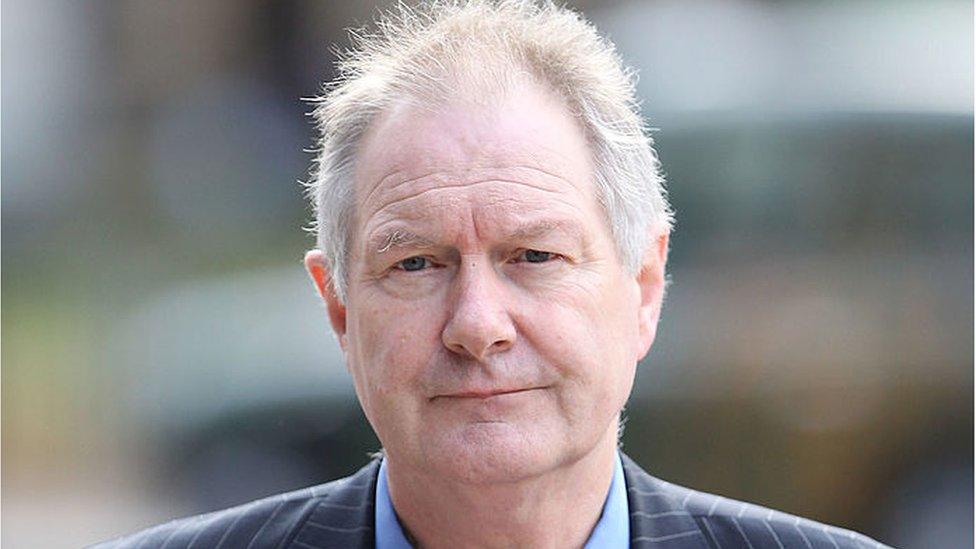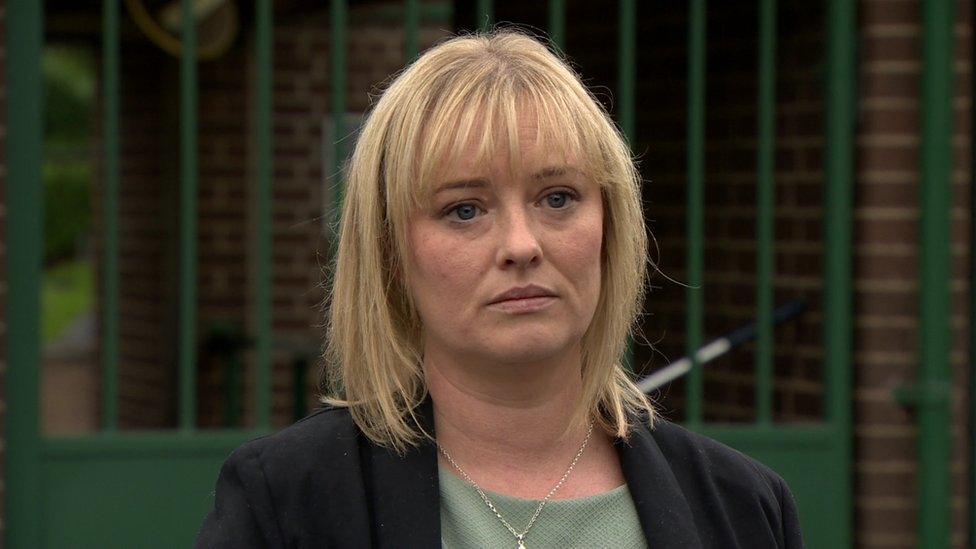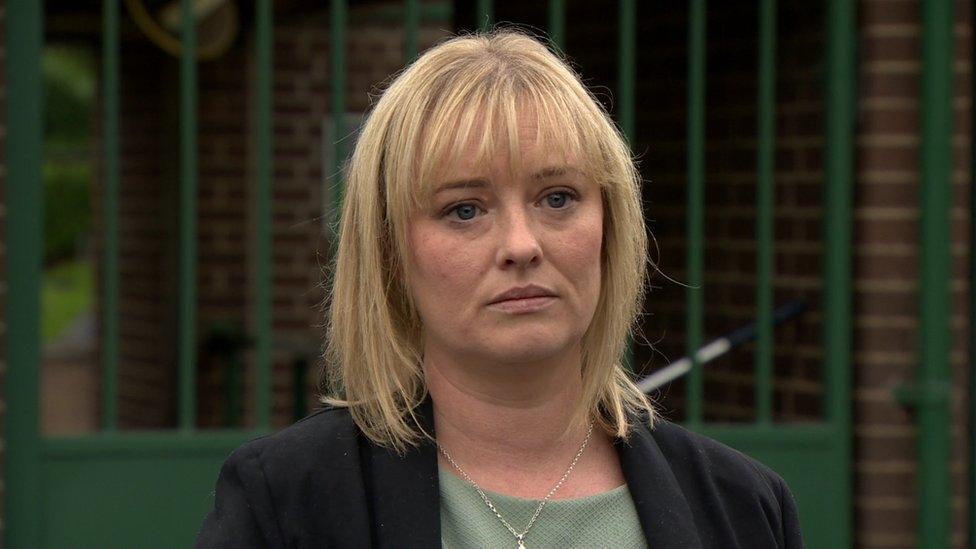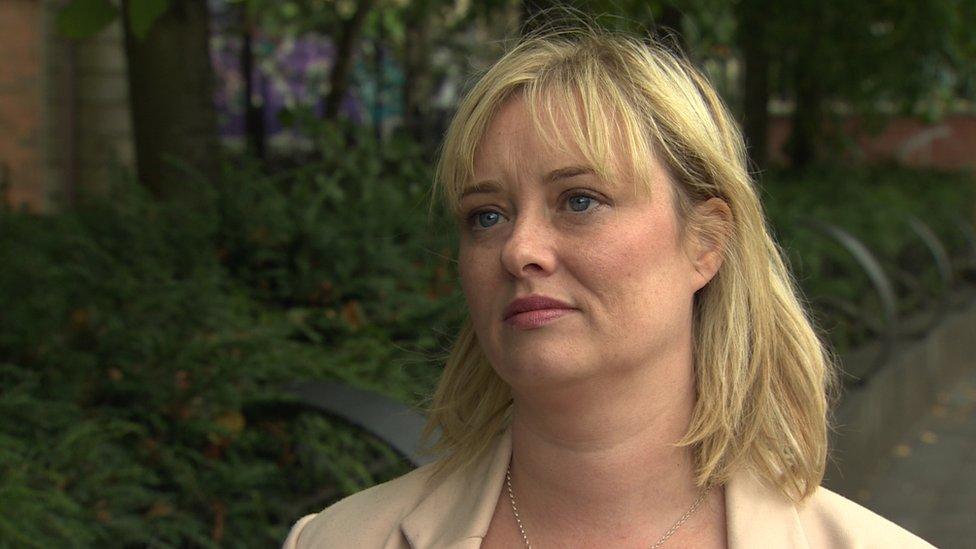Roy Greenslade: The Guardian to review NI articles by ex-Fleet Street editor
- Published

Roy Greenslade is a former editor of the Daily Mirror and was media commentator for The Guardian
The Guardian has launched a "review" into articles concerning Northern Ireland written by former newspaper editor Roy Greenslade.
Mr Greenslade has come under scrutiny after revealing he supported the IRA's armed campaign in the 1970s and 80s while working as a journalist.
He is a former editor of the Daily Mirror and worked for The Guardian as a media commentator.
The review comes after a complaint to the newspaper by Máiría Cahill.
Ms Cahill reported to police in 2010 that she had been raped by a member of the IRA. and received an apology from the Police Service of Northern Ireland (PSNI) in 2018 after a report found she had been failed by them.
She complained to The Guardian that an article written by Mr Greenslade about her six years ago was a "propaganda piece against a rape victim".
"In light of his recent disclosure of his long-held support for the IRA, I believe The Guardian should disassociate itself from this piece and apologise for the decision to carry it," she wrote, in her complaint to the newspaper.
In his article about Ms Cahill, Mr Greenslade said a BBC Spotlight team behind the documentary into her case "were too willing to accept Cahill's story and did not point to countervailing evidence".
"This lack of balance resulted in the Cahill story being accepted at face value across Ireland, where [Gerry] Adams and his party were forced on to the back foot as they tried to defend and explain the IRA's actions," it added.

Máiría Cahill described Mr Greenslade's article about her in The Guardian as "vile"
Ms Cahill's complaint this week came after Mr Greenslade wrote in the British Journalism Review that he backed the IRA while working as a journalist during the Troubles.
"I came to accept that the fight between the forces of the state and a group of insurgents was unequal and therefore could not be fought on conventional terms." he wrote.
"In other words, I supported the use of physical force."
The Provisional IRA killed more than 1,700 people during a the Troubles.
He also described writing columns at the time for An Phoblacht, under the pseudonym George King and said he is now a full-time member of Sinn Féin.
On Monday, it emerged Mr Greenslade had resigned from his post as a journalism lecturer at City University in London following the article.
'Untold hurt and upset'
In her complaint to The Guardian's readers' editor Ms Cahill described the article written about her by Mr Greenslade as "vile".
"The article was, in my view, a propaganda piece against a rape victim, me, and in support of the republican movement," she wrote.
"There is no full disclosure about the writer's support for the IRA, or indeed that he previously wrote for An Phoblacht, the newspaper who published a profile piece on my abuser in 2000 in an effort to silence me from disclosing my abuse."
Ms Cahill's complaint said the article caused "untold hurt and upset at the time and since".
"The fact that Roy Greenslade saw fit to take this angle when a child abuse victim disclosed a horrendous and deeply traumatic account of her life speaks volumes," it added.
Speaking to BBC News NI, Ms Cahill said The Guardian should retrospectively review whether his work for them met editorial standards in the light of his disclosure this week.
"The piece about me is still up online, six years later, with no disclosure at the bottom of it. That's something they could have done immediately and they haven't done it." she added.
In a statement, The Guardian said it had received a complaint from Ms Cahill and "is investigating this issue".
"The readers' editor will also be reviewing other historical Roy Greenslade articles concerning Northern Ireland, to ensure that they meet the Guardian's editorial standards and are sufficiently transparent."
The BBC has contacted Roy Greenslade for a response.
Mr Greenslade told the Press Gazette on Tuesday, external that he "did nothing more than the scores of journalists who keep their political views to themselves".
Related topics
- Published14 September 2018

- Published13 September 2018
